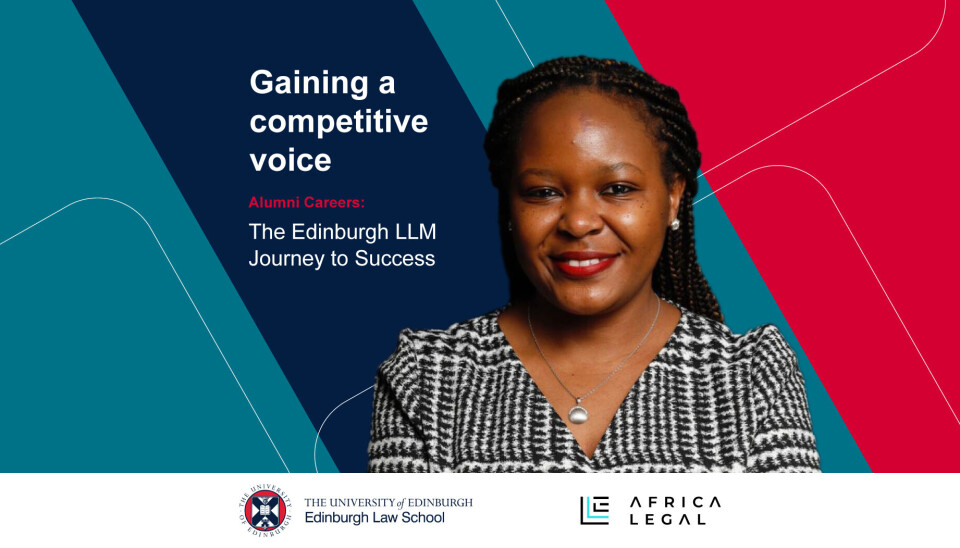Social capital is vital, and one of the great advantages of studying at an international university is the global network you will build that can provide a competitive edge and help you for years to come, says Kenyan lawyer and data protection expert Faith Jumba.
“I’d highly encourage law students or young lawyers from Kenya and Africa to study at international universities because it opens your mind, exposes you to multicultural setups, and you’ll learn from other people,” said Jumba, Data Protection Officer at National Bank of Kenya and Secretary, Data Protection Working Group for the Kenya Bankers Association. “Your network is your net worth, basically. Engage in activities, societies and workshops within your organisation and universities, because it will expose you to various things and you’ll connect and interact with people.”
Whether studying in person or online, it’s important to go beyond books and put yourself out there to connect with the people you’ll encounter during postgraduate studies, noted Jumba. She moved to Scotland in 2020 during the early days of the pandemic to study an LLM in Innovation, Technology and the Law at the historic University of Edinburgh.
Jumba says she’s always been interested in technology, from cybercrime and data protection to issues with AI and robotics. Early in her career, while working at Kenya’s Central Bank and Capital Markets Authority, she became fascinated by the various challenges facing financial regulators, from fraud and identity theft to citizen complaints and the fintech regulatory sandbox.
“I decided it was time for me to gain a competitive edge and build my knowledge,” she recalled. “One of the aspects that led me to go and do an LLM at Edinburgh was that I wanted a programme that would expose me to various tenets: intellectual property, innovation, robotics, AI and issues with cybersecurity. I was able to interact with some of the professors at Edinburgh and see the work being done at SCRIPT Centre – the Scottish Research Institute for Intellectual Property and Technology Law – and felt it was the best place for me to go.”
Jumba lit up as she reminisced about her time in Edinburgh and her many fond memories, from the Gothic architecture, beautiful landscapes and weekend hikes with new friends, to friendships made with people of many nationalities and the interactive group coursework which developed her critical thinking skills and encouraged her to think outside the box.
“The professors appreciated everyone’s views and needed you to have a view,” she shared. “You couldn’t just do the course without lots of classroom participation. Every view counted, and that really broadened my perspective. There was a lot of exchanging of ideas and you got to learn best practices from all over the world. Technology law is always evolving, so there are always new things to debate – controversial things – which made the classes very interesting.”
Jumba says she returned home having honed her competitive edge through international exposure, which has helped her to keep setting the pace in Kenya’s technology law field.
Read more from the University of Edinburgh Series





